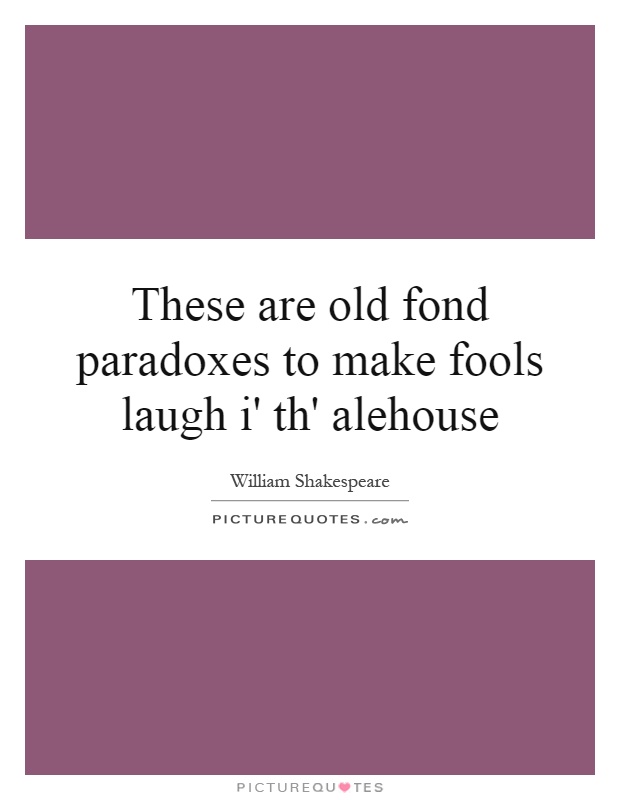These are old fond paradoxes to make fools laugh i' th' alehouse

These are old fond paradoxes to make fools laugh i' th' alehouse
The line "These are old fond paradoxes to make fools laugh i' th' alehouse" is from William Shakespeare's play "As You Like It." In this context, the character Touchstone is speaking to the shepherd Corin about the nature of wit and humor. Touchstone is a court jester who often uses paradoxes and wordplay to entertain and amuse others.The phrase "old fond paradoxes" refers to the use of clever and contradictory statements that are meant to provoke thought and laughter. Paradoxes are a common literary device used by Shakespeare and other playwrights to create humor and engage the audience. In this case, Touchstone is suggesting that the paradoxes he uses are not new or original, but rather old and familiar. However, he believes that they still have the power to make fools laugh, even in a simple setting like an alehouse.
The reference to the alehouse is significant because it suggests that humor and wit are not limited to the sophisticated and refined world of the court. Touchstone's ability to entertain and amuse with his paradoxes transcends social boundaries and can be appreciated by all, regardless of their station in life. The alehouse is a place where people from all walks of life gather to drink, socialize, and enjoy each other's company. Touchstone's presence in the alehouse highlights the universal appeal of his wit and humor.
Touchstone's statement also reflects Shakespeare's own views on the power of language and wordplay. Throughout his plays, Shakespeare uses language to create complex characters, explore themes, and entertain audiences. The use of paradoxes, puns, and other forms of wordplay adds depth and richness to his work, making it both intellectually stimulating and emotionally engaging.












 Friendship Quotes
Friendship Quotes Love Quotes
Love Quotes Life Quotes
Life Quotes Funny Quotes
Funny Quotes Motivational Quotes
Motivational Quotes Inspirational Quotes
Inspirational Quotes